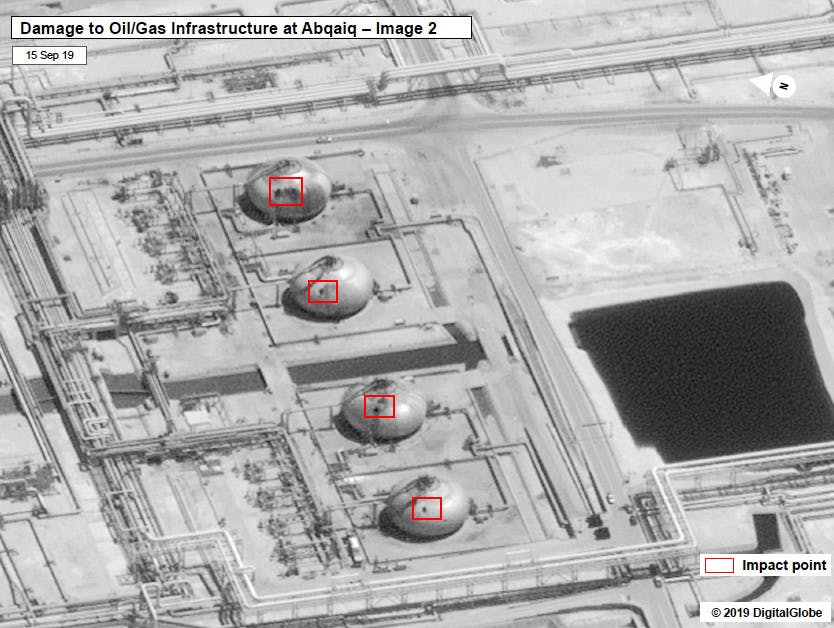The Latest on this Saudi Business

Here’s an update of what the folks are saying…
- Joseph Trevithick has a good rundown of what we know, of what folks are alleging, and of the gaps between the two.
- Tyler Rogoway discusses how the media is already getting information about the strikes wrong, and that the disinformation creates a dangerous policy environment. Tyler also makes some excellent points about the implications of the attack for the future of warfare.
- Word leaking out of the US intelligence community suggests that it’s in the process of concluding that the attack came directly from Iran.
- The attack was plenty sophisticated, although this doesn’t necessarily rule in or rule out any specific actor.
My own thoughts:
- Iran seems clearly involved, whether directly or through its support of the Houthis (or Iraqi militias), who would not have the capacity to mount this kind of attack, at this range and with this precision, without Iranian technical assistance. The only questions at this point involve the nature of and motivation behind Iranian involvement.
- It’s not at all difficult to construct a plausible Iranian motivation. Actors within Iran may well believe, with some cause, that Riyadh is the center of gravity of the anti-Tehran coalition in the Gulf, and that making the Saudis appreciate their own vulnerability is worth the risk of a wider war. The Iranians may also have concluded, with some evidence, that President Trump simply does not want open military conflict.
- Supporting the Saudi monarchy is not a clear national interest for the United States. Disruption of global oil production (and consequently the global economy) is a clear national interest for the United States, as it has a real impact on international economic stability. The threat to the US directly has been significantly moderated by increases in US oil production over the last decade, but disruption of Saudi production will nevertheless have wide-ranging effects on the global economy that will impact US workers and US firms.
- The previous observation does not necessarily lead to any specific policy response. The prospect of future military action between Iran and the United States now seems quite high, but strikes against Iran are hardly the only option; the US can certainly endure the dislocation caused by disruption, can relax sanctions on Iran in the hopes of moderating Iranian behavior, or can pressure the Saudis into relaxing their confrontation with Iran.
- It may actually be true that President Trump is reluctant to launch attacks on Iran. Whatever reluctance he had with respect to Syria was easy to dispense with, but it’s certainly true that Trump has had several opportunities to order strikes on Iran, and has not done so despite pressure inside his administration. However, Trump undoubtedly bears the greater proportion of responsibility for the current situation, both because of his unqualified support for the Saudis and because of his decision to withdraw from the JCPOA. If there’s war, it will belong to Trump, even if he didn’t really want it.
- Somebody in comments is going to float “false flag! the saudis did it to themselves!” which… okay? The Riyadh government is not in the habit of inflicting serious damage on its own facilities, or in demonstrating its own complete ineptitude to contest foreign attacks. The evidentiary hill for a false flag, as is almost always the case, much higher than the more easily connected Iranian dots.


